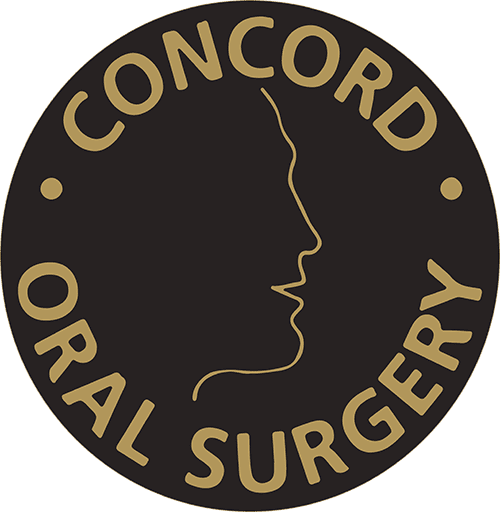Reviewed By Dr. Robert Barron, DMD
Reading Time: 4 minutes
If your dental implant or a part of it fell out, contact your oral surgeon or implant specialist immediately!
Dental implants are designed to be permanent, but issues can arise. Most often, it is not the implant but another component, like the crown or abutment, that has fallen out.
In this blog, we will explain what you should do if your implant or a part of your implant has fallen out.
Table of Contents
Key Takeaway
If your dental implant or a component of your implant has fallen out, save it in a clean container and call your dental implant specialist immediately for evaluation and treatment.
The Parts of a Dental Implant
If you know the parts of your dental implant, you can quickly identify what has fallen out.
- Implant screw: This is the part that fuses with your jawbone during the osseointegration process. It looks like a small metal cylinder or screw and is usually not visible unless it has come out completely.
- Cover screw or healing cap: These components are placed over or stick out of the implant while the gums heal. They are typically small, flat, or slightly rounded metal pieces.
- Abutment: A post that connects the crown to the implant screw. It resembles a small peg or post made of metal that protrudes from the gum.
- Crown: The visible, replacement tooth that attaches to the abutment. It looks like a natural tooth and is usually made of ceramic or porcelain.
Step 1: Identify What Fell Out
It is very rare for the implant post to fall out, but it can happen. Identify the part that came loose and call your surgeon right away.
Step 2: Call Your Implant Specialist Immediately
If you had the dental implant placed at Concord Oral Surgery, call (905) 669-2616. If it is after hours, you will reach an answering service. They will put the call through to Dr. Barron and he will give you instructions on how to proceed.
If Concord Oral Surgery is not your home clinic, call your surgeon first. It is best to see the dentist who placed the implant. If they are not able to accomodate you, then we will do our best to get you in either on the same day or the next day.
Step 3: Protect the Area
Take immediate steps to avoid further complications.
- Rinse gently: Use warm salt water to clean the area and reduce bacteria.
- Avoid chewing near the site: Stick to soft foods to prevent additional pressure.
- Keep the part safe: Place the fallen piece in a clean container to bring to your dentist.
- Do not touch the site: Avoid poking the area with your tongue or fingers.
What Your Dental Professional Will Do
When you visit your implant specialist or oral surgeon, they will first clean the area thoroughly to reduce the risk of infection, which may include using an antibiotic rinse or prescribing antibiotics.
They will take an x-ray to evaluate the implant site and identify the cause of the issue, whether it is a loose component, infection, or bone loss. If the implant screw is intact, they may reattach the fallen component, such as a crown or abutment, after checking for damage.
If the implant screw itself has failed, they will discuss replacement options, which could involve bone grafting to rebuild the foundation for a new implant. Alternatively, they may recommend other solutions, such as a fixed bridge or removable denture, depending on your specific needs.
Why Do Dental Implants Fail?
Several factors can cause dental implant components to fail:
- Bacterial infection: This can weaken the surrounding tissue and bone.
- Excessive bite pressure: Grinding or clenching can loosen implant parts.
- Improper placement: Poor positioning can result in implant failure.
- Bone loss: Lack of bone support can lead to instability.
- Material fatigue: Over time, parts like screws may fracture. Your implant specialist will determine the cause and recommend steps to restore your implant or explore alternative treatments.
How to Prevent Future Issues
Caring for your dental implant is key to long-term success.
- Maintain proper oral hygiene: Brush and floss daily to keep bacteria at bay.
- Attend regular dental checkups: Professional cleanings and exams can catch problems early.
- Avoid hard or sticky foods: These can place unnecessary stress on the implant.
- Protect your teeth while sleeping: Use a nightguard if you grind your teeth.
Contact Concord Oral Surgery in Vaughan, ON, for Help
If you notice anything unusual with a dental implant, call your implant specialist right away. It is always better to err on the side of caution.
Our oral surgery office in Vaughan is open Monday 7:30am to 4:30pm and Wednesday to Friday 7:30am to 4:30pm. We are located on the northwest corner of Hwy 7 and Edgeley Blvd, one block east of Hwy 400 in The Royal Centre.
To book an appointment call (905) 669-2616 or visit us at 3300 Highway 7 West, Suite 805, Vaughan, ON.

